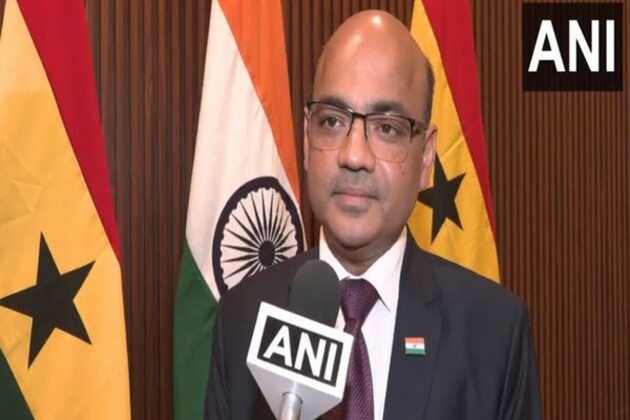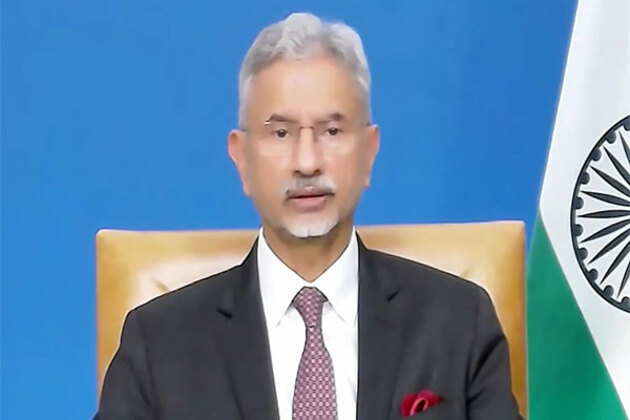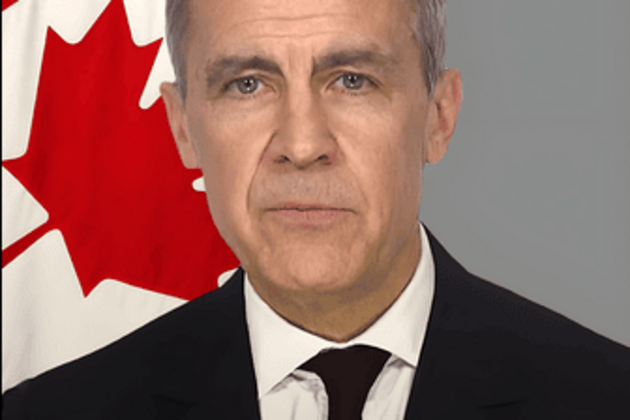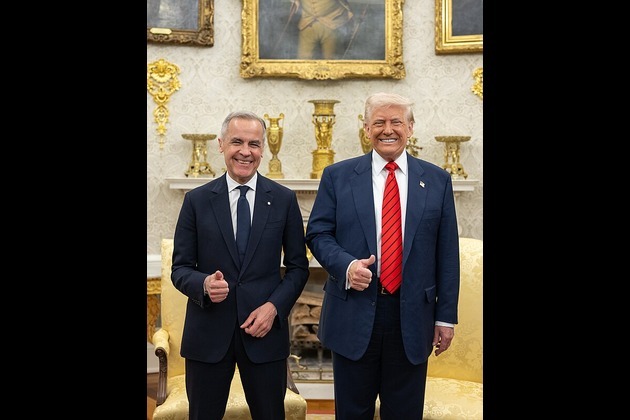The Amazon is on fire ? here are 5 things you need to know
News24
25 Aug 2019, 11:40 GMT+10
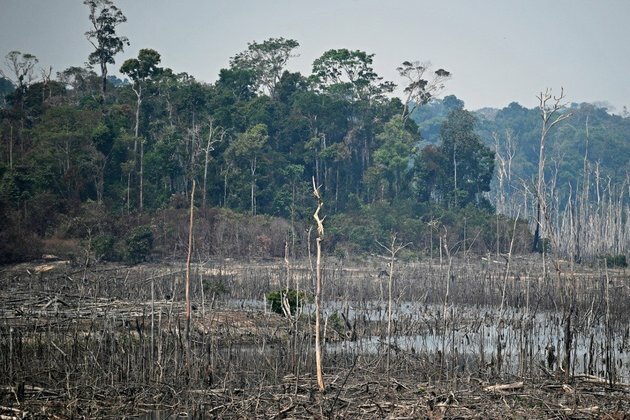
Record fires are raging in Brazil's Amazon rainforest, with more than 2,500 fires currently burning. They are collectively emitting huge amounts of carbon, with smoke plumes visible thousands of kilometres away.
Fires in Brazil increased by 85% in 2019, with more than half in the Amazon region, according to Brazil's space agency.
This sudden increase is likely down to land degradation: land clearing and farming reduces the availability of water, warms the soil and intensifies drought, combining to make fires more frequent and more fierce.
1. Why the Amazon is burning
The growing number of fires are the result of illegal forest clearning to create land for farming. Fires are set deliberately and spread easily in the dry season.
The desire for new land for cattle farming has been the main driver of deforestation in the Brazilian Amazon since the 1970s.
READ MORE | Hundreds of new fires in Brazil as outrage over Amazon grows
Ironically, farmers may not need to clear new land to graze cattle. Research has found a significant number of currently degraded and unproductive pastures that could offer new opportunities for livestock.
New technical developments also offer the possibility of transforming extensive cattle ranches into more compact and productive farms - offering the same results while consuming less natural resources.
2. Why the world should care
The devastating loss of biodiversity does not just affect Brazil. The loss of Amazonian vegetation directly reduces rain across South America and other regions of the world.
The planet is losing an important carbon sink, and the fires are directly injecting carbon into the atmosphere. If we can't stop deforestation in the Amazon, and the associated fires, it raises real questions about our ability to reach the Paris Agreement to slow climate change.
The Brazilian government has set an ambitious target to stop illegal deforestation and restore 4.8 million hectares of degraded Amazonian land by 2030. If these goals are not carefully addressed now, it may not be possible to meaningfully mitigate climate change.
3. What role politics has played
Since 2014, the rate at which Brazil has lost Amazonian forest has expanded by 60%. This is the result of economic crises and the dismantling of Brazilian environmental regulation and ministerial authority since the election of President Jair Bolsonaro in 2018.
Bolsonaro's political program includes controversial programs that critics claim will threaten both human rights and the environment. One of his first acts as president was to pass ministerial reforms that greatly weakened the Ministry of the Environment
Regulations and programs for conservation and traditional communities' rights have been threatened by economic lobbying.
Over the last months, Brazil's government has announced the reduction and extinction of environmental agencies and commissions, including the body responsible for combating deforestation and fires.
4. How the world should react
Although Brazil's national and state governments are obviously on the front line of Amazon protection, international actors have a key role to play.
International debates and funding, alongside local interventions and responses, have reshaped the way land is used in the tropics. This means any government attempts to further dismantle climate and conservation policies in the Amazon may have significant diplomatic and economic consequences.
For example, trade between the European Union and South American trading blocs that include Brazil is increasingly infused with an environmental agenda. Any commercial barriers to Brazil's commodities will certainly attract attention: agribusiness is responsible for more than 20% of the country's GDP.
Brazil's continued inability to stop deforestation has also reduced international funding for conservation. Norway and Germany, by far the largest donors to the Amazon Fund, have suspended their financial support.
These international commitments and organisations are likely to exert considerable influence over Brazil to maintain existing commitments and agreements, including restoration targets.
5. There is a solution
Brazil has already developed a pioneering political framework to stop illegal deforestation in the Amazon. Deforestation peaked in 2004, but dramatically reduced following environmental governance, and supply change interventions aiming to end illegal deforestation.
Environmental laws were passed to develop a national program to protect the Amazon, with clearing rates in the Amazon falling by more than two-thirds between 2004 and 2011.
Moreover, private global agreements like the Amazon Beef and Soy Moratorium, where companies agree not to buy soy or cattle linked to illegal deforestation, have also significantly dropped clearing rates.
We have financial, diplomatic and political tools we know will work to stop the whole-sale clearing of the Amazon, and in turn halt these devastating fires. Now it is time to use them.
 Share
Share
 Tweet
Tweet
 Share
Share
 Flip
Flip
 Email
Email
Watch latest videos
Subscribe and Follow
Get a daily dose of Brazil Sun news through our daily email, its complimentary and keeps you fully up to date with world and business news as well.
News RELEASES
Publish news of your business, community or sports group, personnel appointments, major event and more by submitting a news release to Brazil Sun.
More InformationSouth America
SectionPM Modi's upcoming Ghana visit to be first by an Indian Prime Minister in three decades: Envoy Manish Gupta
Accra (Ghana) [India], July 2 (ANI): Prime Minister Narendra Modi's upcoming visit to Ghana will be the first by an Indian Prime Minister...
NMDC expands global footprint with its new office in Dubai, forging global pathways in mining
Hyderabad (Telangana) [India], July 1 (ANI): NMDC, India's largest iron ore producer, marked a significant milestone with the inauguration...
FIFA Club WC: Last two QF spots up for grabs as Real Madrid, Dortmund among teams in action
New Delhi [India], July 1 (ANI): The last two spots for the quarterfinals of the FIFA Club World Cup will be sealed by either Spanish...
New road will remain as symbol of India-Guyana "deep friendship": Jaishankar as Phase I of Ogle to Eccles portion of the East Coast-East Bank road linkage project is commissioned
Georgetown [Guyana], July 1 (ANI): As Guyana President Irfaan Ali commissioned Phase I of the Ogle to Eccles portion of the East Coast-East...
PERU-CUSCO-INTI RAYMI-INCA FESTIVAL
(250701) -- CUSCO, July 1, 2025 (Xinhua) -- This photo taken on June 20, 2025 shows people celebrating Inti Raymi, or the Festival...
ARGENTINA-BUENOS AIRES-YPF-U.S.-RULING-APPEAL
(250701) -- BUENOS AIRES, July 1, 2025 (Xinhua) -- This photo taken on June 30, 2025 shows a YPF logo in Buenos Aires, Argentina. Argentina...
Business
SectionTech stocks slide, industrials surge on Wall Street
NEW YORK, New York - Global stock indices closed with divergent performances on Tuesday, as investors weighed corporate earnings, central...
Canada-US trade talks resume after Carney rescinds tech tax
TORONTO, Canada: Canadian Prime Minister Mark Carney announced late on June 29 that trade negotiations with the U.S. have recommenced...
Lululemon accuses Costco of selling knockoff apparel
Vancouver, Canada: A high-stakes legal showdown is brewing in the world of athleisure. Lululemon, the Canadian brand known for its...
Shell rejects claim of early merger talks with BP
LONDON, U.K.: British oil giant Shell has denied reports that it is in talks to acquire rival oil company BP. The Wall Street Journal...
Wall Street extends rally, Standard and Poor's 500 hits new high
NEW YORK, New York - U.S. stock markets closed firmly in positive territory to start the week Monday, with the S&P 500 and Dow Jones...
Canadian tax on US tech giants dropped after Trump fury
WASHINGTON, D.C.: On Friday, President Donald Trump announced that he was halting trade discussions with Canada due to its decision...

